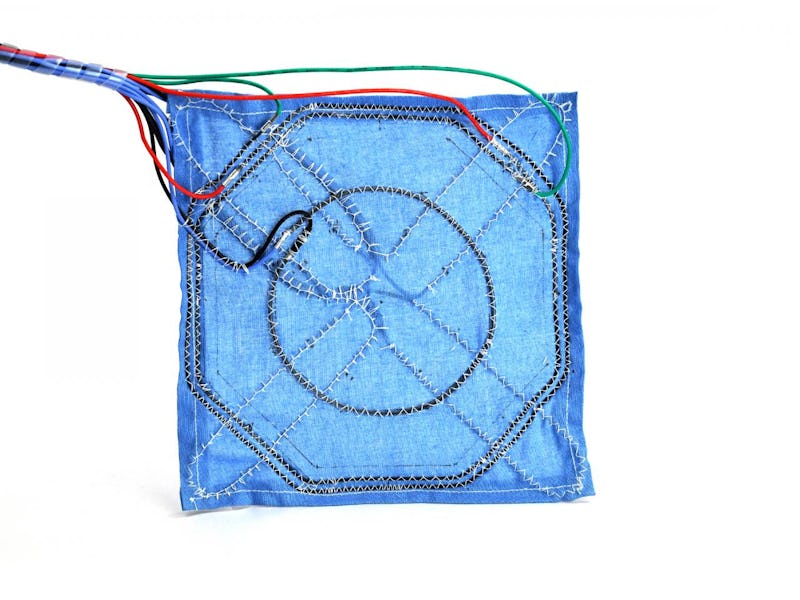Nickel and robotic fabric: The building blocks of the future
In this episode, we explain how the most basic materials could revolutionize daily life.

Throughout human history, basic materials have been driven to the forefront of innovation.
From the nickel that helped build everything from cars and trains (and stainless steel kitchens everywhere) to the very cloth that’s been holding things together since the beginning of time, scientists continue to expand our idea of what goes into the building blocks of modern life.
As a “fabric evolution” turns thread into a robot, a world of adaptive clothing and self-deploying shelters becomes possible. At the same time, a nickel revolution is underway — but it doesn’t come without environmental risks.
Heavily used in electric car batteries, companies are mining the mineral at high volume, hoping to change the future of transportation without wreaking havoc on the natural world.
As we roboticize fabric and transform basic minerals, we not only create crucial inventions that can change how we live but lasting symbols of human ingenuity as well.
In this episode of The Abstract, we explain how the most basic materials could revolutionize daily life.
Our first story is about how one precious mineral is shaping the future of transportation. As the demand for electric car batteries escalates, companies are working tirelessly to mine nickel without putting the planet in peril.
Our second story looks at what could spark the next tech revolution: a standalone platform for incredibly strong robotic fabrics. This invention could eventually lead to self-deploying structures and shape-changing machinery that may enable breakthroughs in medicine, the military, and our everyday lives.
Read the original Inverse stories:
- Nickel: everything you need to know about Elon Musk's new favorite mineral
- Robot fabric could solve the most annoying part of camping
Where to find us:
- Subscribe to The Abstract wherever you listen to podcasts: iTunes | Spotify | TuneIn | RadioPublic | Stitcher
- Follow David Grossman on Twitter
- Follow Inverse on Twitter
- We're hosted and produced by Tanya Bustos
—
Right now, facts and science matter more than ever. That's part of the reason for The Abstract, this all-new podcast from the Inverse staff that focuses exclusively on science and innovation. Three new episodes are released a week, and each covers one theme via two related stories. Each features audio of original Inverse reporting, where the facts and context take center stage. It's hosted by the Tanya Bustos of WSJ Podcasts. Because we're Inverse, it's all true but slightly off-kilter. It's made for people who want to know the whole story. —Nick Lucchesi, executive editor, Inverse